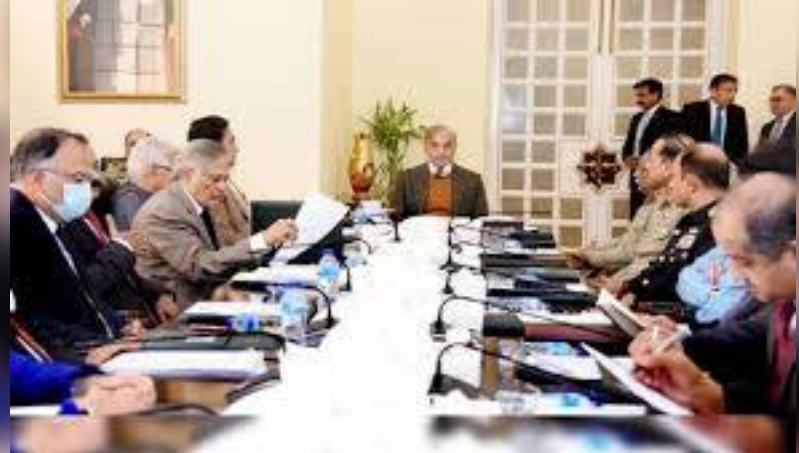Islamabad (Web Desk): Prime Minister Shehbaz Sharif is chairing the meeting of National Security Committee (NSC) to mull the situation that developed after the Indian Government’s statement following the killings of at least 27 tourists in Pahalgam in Indian Illegally Occupied Jammu and Kashmir (IIOJK).
The meeting, which includes all senior military leaders, top government officials, and key cabinet members, aims to evaluate the security landscape and formulate a strategy in response to the escalating tensions with India.
Sources indicate that the government is deeply concerned about the situation and is preparing to respond robustly to the Indian government's accusations, which they view as an attempt to deflect blame.
Pakistan's leadership has decided to issue a strong diplomatic rebuttal to India's inflammatory rhetoric and its baseless claims regarding the Pahalgam attack.
While deliberations are still underway at the highest levels and any final strategy in this regard would be approved by the prime minister.
Pakistan has firmly rejected previous allegations from India, maitaing that the Modi government has failed to provide any credible evidence to support its accusations against Pakistan.
The strategy being devised will likely focus on countering India's narrative and reinforcing Pakistan's position on the issue.
Earlier on Wednesday, Deputy Prime Minister and Foreign Minister Ishaq Dar wrote on microblogging site X. that, "Prime Minister Mohammad Shehbaz Sharif has convened the meeting of the National Security Committee on Thursday morning 24th April 2025 to respond to the Indian government's statement of this evening."
Defence Minister Khawaja Asif also stated that that a session of the National Security Committee (NSC) has been summoned on Thursday to decide on an appropriate response to the steps taken by New Delhi after the Indian government announced certain steps following the deaths of 26 tourists in a shooting incident in the Indian Illegally Occupied Jammu and Kashmir.
In a sharp escalation of diplomatic tensions following the recent Pehalgam incident, India on Wednesday announced the immediate suspension of the Indus Waters Treaty with Pakistan, a landmark agreement signed in 1960 governing the sharing of water resources in South Asia.
In a series of stringent measures, India has also declared the closure of the Wagah-Attari border and announced a significant reduction in the number of Pakistani diplomatic staff allowed in India, cutting the figure from 55 to 35.
Meanwhile, the Indian government has decided to suspend visa issuance to Pakistani nationals under the under the South Asian Association for Regional Cooperation (SAARC) framework.
All Pakistani citizens currently in India have been ordered to leave the country within 48 hours. The Wagah border crossing, a key route for bilateral trade and civilian movement, will also be shut down.
According to the spokesperson of India’s Ministry of External Affairs, all visas issued to Pakistani nationals are being cancelled.
The Pakistani High Commission staff in India has been directed to return to Islamabad within seven days.
Moreover, India has also part of its diplomatic staff from Pakistan and has declared Pakistan’s Naval and Air Force attachés as “persona non grata.”
The suspension of the Indus Waters Treaty, a cornerstone agreement brokered by the World Bank in 1960, marks a significant deterioration in bilateral relations and could have far-reaching consequences for regional water security and diplomacy.
Experts are calling this a dangerously escalatory step that will not only disrupt official relations but also sever vital people-to-people connections between the two countries.
While the Government of Pakistan has yet to issue an official response, foreign policy analysts suggest that Islamabad may soon adopt a firm stance and raise the matter on international platforms.
According to reports, at least 27 tourists were killed in the shooting by unidentified gunmen in Pahalgam, IIOJK.
In the aftermath of the attack, Indian media began accusing Pakistan of being involved—allegations that Kashmiri leaders have rejected, calling it yet another example of a ‘false flag’ operation conducted by India.


